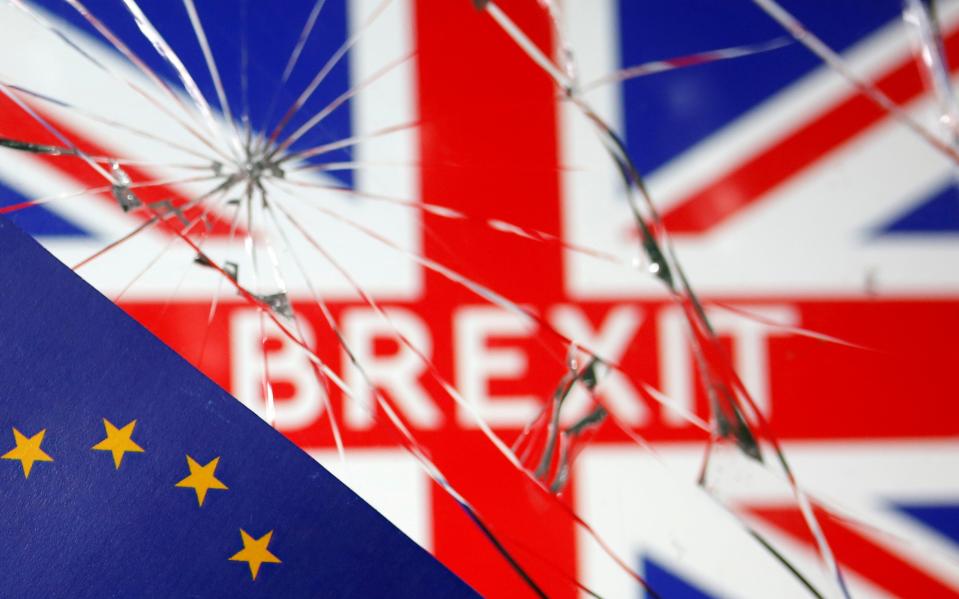Brexit: What are the issues holding up a trade deal with the EU? OLD

After 10 months of negotiations on a free trade agreement, the differences between the UK and EU have boiled down to three key issues.
Large chunks of the proposed deal were agreed relatively early after the formal date of Brexit on 31 January, freeing officials to work methodically through the process of getting the agreement into legal text.
But on the level playing field, governance and fish, there was no such meeting of minds, with bulletins after each round of talks repeatedly stating that “significant divergence remains”.
So what are the issues that have made a trade deal so difficult to finalise?
Level-playing field:
This is Brussels code for maintaining a common set of rules and standards governing business activities on both sides of the Channel.
It is a fundamental principle of the EU single market that member states observe the same rulebook in areas like workplace rights, environmental standards and taxation.
And there are strict limits on so-called “state aid”, or government subsidies to companies or industrial sectors.
This prevents one country gaining a competitive advantage for its businesses by allowing them to operate to lower standards which make their products cheaper.
Even though the UK will no longer be part of the single market after 31 December, Brussels insists that the zero-tariff zero-quota deal which Boris Johnson is seeking must come with the same disciplines on standards.
This is anathema to the prime minister and many other Brexiteers, who see it as one of the principal benefits of leaving the EU that Britain will in future be able to set its own rules.
And they bridled even further at demands for a “ratchet” mechanism preventing either side from reducing standards if the other raises them in future, as well as so-called dynamic alignment requiring the UK to follow Brussels rules on state aid forever.
UK negotiators have insisted that Britain should benefit from the more relaxed terms offered countries like Canada in its trade deal. But the EU insists that this is not possible because of Britain’s geographical proximity to continental Europe and the deep interconnection of the two economies.
Governance:
Any deal will inevitably lead to disputes, as one side accuses the other of breaches of its terms.
The question is how such disputes are resolved and who has the final say.
Last year’s withdrawal agreement set up independent arbitration panels to consider any alleged breaches of the divorce deal, with issues of EU law to be referred to the European Court of Justice.
The EU has argued that a similar arrangement should be put in place for trade disputes.
Britain has insisted that the ECJ should have no role and argued that any dispute resolution mechanism must respect the autonomy of the EU and UK legal systems.
Fish:
Fishing and fish processing represent together only 0.2 per cent of the UK economy, but the industry has become a totemic issue for Brexiteers, making it very difficult for Mr Johnson to give ground.
The issue is all the more sensitive because many fishing ports are precisely the kind of “left-behind” towns whose economic fortunes were promised a boost from Brexit.
Britain’s fishing industry has shrunk dramatically since EU entry in 1973, in part because of quotas which gave foreign vessels access to large parts of the catch in UK waters.
EU boats currently catch around £600m worth of fish - more than 60 per cent of the total tonnage - in UK waters each year. The fleets of France, the Netherlands and Denmark each take more fish from British waters than the UK does.
Brussels wants to retain fixed quotas over the long term, and has offered options for reviews after five or 10 years. An offer to return around 15-18 per cent of the value of fish stocks currently caught by EU fleets was rejected by the UK.
Britain says it will be an independent coastal state with full control over its own waters after the end of the Brexit transition 31 December and wants annual negotiations on access rights similar to those which Norway has with the EU each year.
This is being fiercely resisted by France, whose president Emmanuel Macron fears the fury of fishing communities who face losing some of their most lucrative hunting-grounds.
Read More
Why some Labour MPs think a hard Brexit would be their fault

 Yahoo Finance
Yahoo Finance 